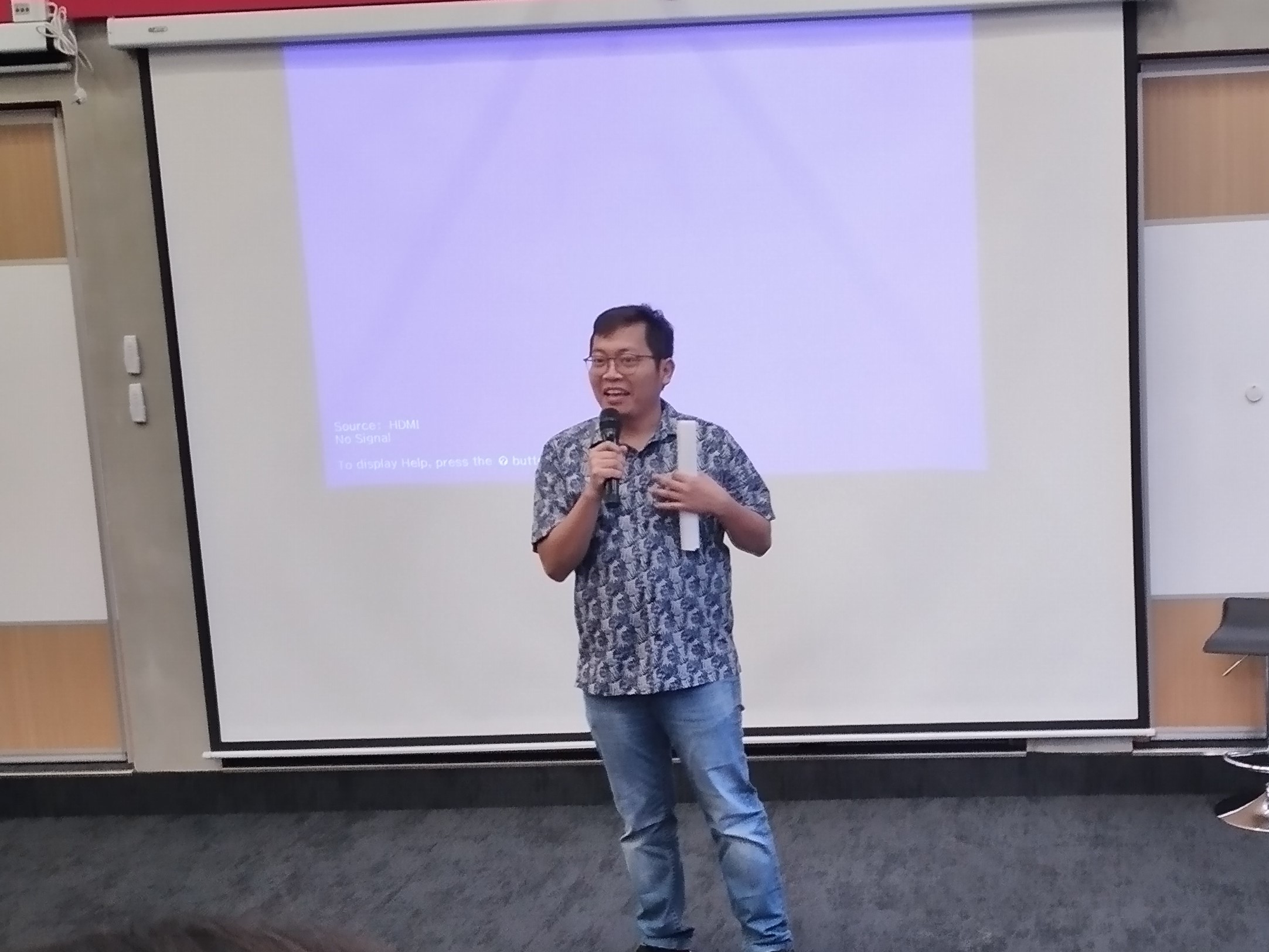Written by Student Reporter, Deo Fernando (Entrepreneurship 2021)
In the Midterm Examination (UTS), students of Entrepreneurship study program had an opportunity to present their business in front of Bukalapak Founder Ahmad Zaky.
The activity was carried out at the Research and Development Building Bukalapak in Bandung on Thursday (05/03/2020), under the coordination of Wawan Dewanto, Ph.D and the teaching teams in the Business plan and Feasibility course. 23 entrepreneurial student startups were presented at Bukalapak. The student startup business is engaged in tourism, fashion, waste treatment, make up, social, and websites or applications. On his opening speech, Ahmad Zaky said “When starting a startup, we must create a Minimum Viable Product (MVP) that is used to visualize our ideas or can be directly used as a product to get customers with a minimum budget.”
Furthermore, students were divided into 2 groups based on classes A and B to determine the presentation room. Students had the opportunity to present their business for 10 minutes with 5 minutes of explanation and 5 minutes of Q&A. Students were also encouraged to bring a minimum of their Viable product (MVP) to be promoted to the teaching team. “The MVP is simple, you can use Wix for websites that can be visualized,” said Ahmad Zaky. Besides the presentation point, one of the evaluation points is the completeness of the MVP so that the ideas presented by students could be accepted by prospective customers.
One example of a student’s startup is the Dosoon Intercultural Tour. Consists of 6 students, Dosoon has the vision to develop villages in one way through tourism. At present, Indonesia’s tourism sector is increasing but only limited to well-known areas such as Bali. In fact, other regions such as villages have high potential from the angle of nature which is still beautiful and culture that is still strong. For this reason, Dosoon is here to empower villages in Indonesia by creating a website where people can easily travel to villages with the value offered in the form of a cultural and natural experience.
In addition, there were also startups engaged in optimizing vegetable and fruit waste to be used as an environmentally friendly washing soap, named Turah. By paying attention to environmental aspects, Turah has a strong desire to recycle organic waste into something useful for many people.
Another case with Look At Me is that it empowers children with disabilities to work through the pictures they paint which will later be used as designs for clothes or other accessories. Look At Me comes in the form of a website that can later be accessed by everyone to get interesting work from children with disabilities.
Wawan dewanto, Ph.D., the head lecturer of the course, hoped that through this event later the student’s startups will get investment from Bukalapak or other investors.




